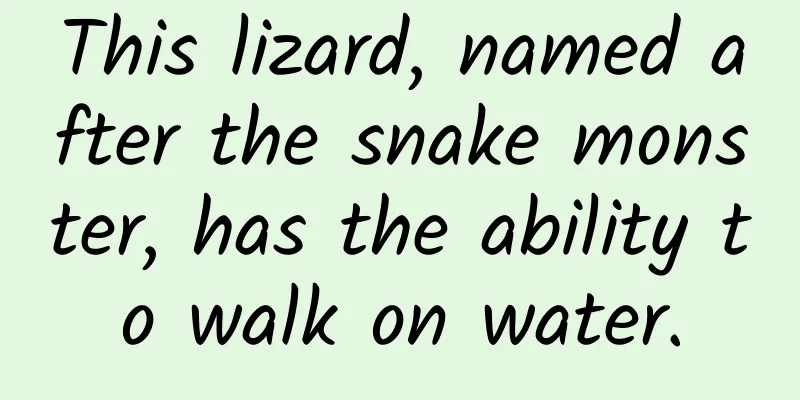Tonga's submarine volcano erupted and many countries issued tsunami warnings! Will it affect China?

|
The current situation in the South Pacific island nation of Tonga has attracted worldwide attention. The volcano on Hon'aha'apai Island, about 65 kilometers north of Nuku'alofa, the capital of Tonga, began to erupt on the morning of the 14th and erupted again on the afternoon of the 15th. The volcanic eruption caused a large amount of volcanic ash, gas and water vapor to enter the high altitude to form a huge cloud, which erupted to an altitude of 20 kilometers. The volcano began to erupt on December 20, 2021 and continued for several days. In 2015, the volcano on Hon'aha'apai Island also erupted. Satellite cloud video screenshot After the volcano erupted on the 14th, all Tonga government departments were closed and the Tonga National Tsunami Warning Center issued a national tsunami warning. After the volcano erupted again on the 15th, the Tonga National Tsunami Warning Center issued another tsunami warning and called on people to stay away from beaches and low-lying areas along the coastline. Experts predict that the eruption could last for weeks or months and remind Tongans to remain vigilant. Volcanic eruption triggers local tsunami Japan, the United States and many other countries are on high alert The erupting volcano was originally an undersea volcano, which formed a new island after the eruption in 2009. According to global water level monitoring data, the volcanic eruption triggered a transoceanic tsunami, affecting the Pacific coastal areas. The Pacific Tsunami Warning Center (PTWC) issued multiple tsunami warning information for this volcanic tsunami and issued a tsunami warning for the areas around the volcanic eruption. Videos circulating on social media showed huge waves crashing onto the coast, flooding roads and pouring into homes. By the evening of the 15th, the capital Nuku'alofa had lost power. Video screenshots A Tongan described it as follows: "Our house was shaking, and then the waves came. My brother thought there was a bomb explosion nearby." The eruption also had a significant impact on the Pacific region. Fiji and Samoa, the neighboring countries of Tonga, both issued tsunami warnings. New Zealand's National Emergency Management Agency issued a warning on the 15th that the northern and eastern coastal areas may be hit by huge waves, and the country's military is on standby at any time. Tsunamis were observed in many places including Kuji Port in Iwate Prefecture, Japan, and tsunami warnings were issued continuously in the early morning of the 16th. Tsunami warnings were also issued in the west coast of the United States, Hawaii, and British Columbia, Canada. The picture is taken from the satellite image analysis company "Planet Labs" As of 11:30 a.m. on January 16, 2022 (Beijing time), tidal stations in Chile, Japan and other countries along the Pacific coast detected tsunami waves of 30 to 150 cm, and the maximum tsunami amplitude at my country's tidal stations was less than 20 cm. According to the latest monitoring results, the Tsunami Warning Center of the Ministry of Natural Resources of China is expected to have no impact on the Chinese coast. What is the difference between a tsunami caused by a volcano and a tsunami caused by an earthquake? Tsunamis are mostly caused by earthquakes, volcanoes and landslides. Xu Jiandong, a researcher at the Volcano Research Center of the China Earthquake Administration, said in an interview with Science and Technology Daily that because the energy and range of the disturbance of the water body by the submarine volcanic eruption are limited, it is rare for volcanic eruptions to cause tsunamis, but they still happen. Wang Peitao, associate researcher at the Tsunami Warning Center of the Ministry of Natural Resources, said that the two have different triggering mechanisms. Tsunamis caused by volcanic eruptions are mainly caused by pyroclastic flows, crater collapse and coastal or submarine landslides caused by volcanic eruptions. Their formation mechanisms and causes are relatively complex, and monitoring and early warning are extremely difficult. Globally, there is currently no operational early warning system for tsunamis caused by volcanic eruptions. It is understood that the commonly used volcano monitoring methods in the world include earthquake, deformation, gravity, electromagnetic, geochemistry, temperature (fountain, jet), hydrology, remote sensing and real-time video observation, etc. my country also officially built and started to operate the China National Volcano Monitoring Network Center in 2006, and the existing volcano monitoring technology has been in line with international standards. As the name suggests, earthquake-induced tsunamis are mainly caused by strong undersea earthquakes. Earthquake tsunamis can quickly determine earthquake parameters based on the earthquake monitoring system, and then provide early warning and prediction of tsunamis caused by earthquakes. At present, my country has established a relatively complete earthquake tsunami monitoring and early warning system, which can issue tsunami warning information within 8-10 minutes after an earthquake occurs. Wang Peitao said that the physical characteristics and disaster-causing abilities of the two are also different. Generally speaking, tsunamis caused by strong submarine earthquakes have longer periods and affect a wider range. Tsunamis caused by volcanic eruptions have shorter periods and greater losses when propagating over long distances. However, they have a stronger impact and disaster-causing ability on local areas closer to the volcano. According to statistical analysis of historical volcanic activity events, the current Tonga volcanic eruption may last for weeks or months. What to do when a tsunami comes? 1. Pay attention to using the news or media to listen to local earthquake warnings or volcanic eruption alerts. 2. If you find that the tide suddenly rises or falls abnormally, the sea level drops significantly, or there are huge waves approaching, you must evacuate the shore as quickly as possible. 3. After hearing the tsunami warning, ships or yachts at sea must not return to the port or dock, but should immediately sail at full speed to the deep sea area, which is safer than the coast. 4. If you unfortunately fall into the water during a tsunami, you should grab floating objects such as wooden boards and avoid being hit by hard objects. At the same time, you should reduce movements in the water, stay afloat, and save energy. 5. Try to float with other people who have fallen into the water as much as possible and try to send out a distress signal so that you will be more easily found by rescuers. The Chinese Consulate General in Osaka reminds Chinese citizens in the consular district to be on guard against tsunami disasters The Chinese Consulate General in Osaka issued a reminder on January 16: Affected by the eruption of the submarine volcano in Tonga, an island country in the South Pacific, Japan issued tsunami warnings and evacuation orders for several coastal cities, including some areas in our consular district, on January 16. The possibility of related secondary risks continuing in the future cannot be ruled out. The Chinese Consulate General in Osaka reminds Chinese citizens in the consular district, especially in relevant cities, to pay close attention to the latest warnings and disaster prevention information from the Japan Meteorological Agency, avoid going to dangerous areas, ensure the safety of people and property, and take precautions against the new coronavirus epidemic. If there are any emergency or special circumstances, please contact our consulate in time. ※Contact information of the Chinese Consulate General in Osaka: Tel: 06-6445-9481/2 Consular protection: 06-6445-9427; 080-1420-8728 Emergency number: 090-6673-6659 (only for major emergencies and accidents) ※24-hour telephone number of the Ministry of Foreign Affairs Global Consular Protection Center: +86-10-12308 or +86-10-59913991 Comprehensive sources: Xinhuanet, Science and Technology Daily, China News Network, Chinese Ministry of Foreign Affairs website, Jiangsu Provincial Seismological Bureau, etc. |
Recommend
Why do pigeons always bow their heads with each step when they walk? Won't they feel dizzy?
Review expert: Ran Hao, a well-known popular scie...
How to identify mini-programs using WeChat? WeChat Mini Program question: How to identify the QR code?
Q: How to identify mini programs using WeChat? We...
Who is to blame for the chaos in the film and television industry where unprofessional young actors have become the target of public criticism?
Nowadays, the film and television industry can no...
Smart home is booming again, Changhong CHIQ is moving forward steadily
With the rapid development and popularization of ...
Will the rear fingerprint recognition of iPhone 8 ruin Cook's growth expectations?
Apple is currently in a dilemma of declining sales...
Science in the spotlight this week | Desert lakes seen from space
1. Desert lakes seen from space Recently, my coun...
Microphone in the universe: Why do scientists want to listen to the sounds of alien worlds?
NASA's Perseverance rover, currently working ...
The first major update of the App Store Review Guidelines in 2017! Modified/newly added content accounts for 23%!
Recently, Apple made the first major update to th...
The subscription account is full of red dots, and 95% of the fans are out of touch! How can public accounts awaken dormant fans through operations?
It is becoming increasingly difficult to run a pu...
Years of doubt: Are seaweed and laver related?
01Are there any relationship between nori and sea...
5G standard released, what is the difference with 4G? Or download 1G movie in 1 second
[[233400]] Key Points China Telecom conducted a 5...
A new scam! Using "quantum technology" to grow crops can help fight diseases, disasters and increase yields?
Recently, a news program exposed a case of defrau...
Mobile IM development: technology selection and common problems
[[134897]] I am currently working on an iOS IM SD...
Is your body exhausted? A table to calculate your fatigue index
Do you have the following symptoms? Your head fee...
6.18 Mid-Year Promotion Public Relations Events Review, Galanz Becomes the Highlight!
The most popular e-commerce festival to date is t...









